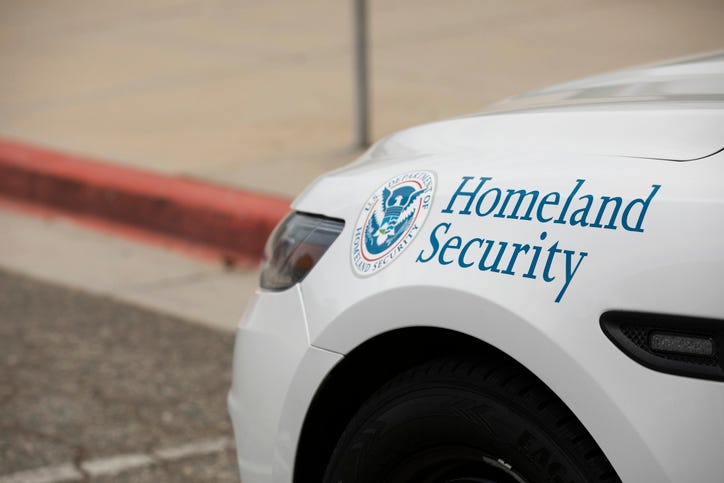
In a significant shift in U.S. immigration policy, President Donald Trump has authorized U.S. Immigration and Customs Enforcement (ICE) to carry out arrests in "sensitive" locations such as schools and churches.
The directive, issued on the first day of Trump's term by acting Department of Homeland Security Secretary Benjamine Huffman, ends a long-standing policy that prohibited ICE operations in these areas since 1993.
The new directive removes protections that have shielded educational institutions, religious sites and other sensitive locations from immigration enforcement, allowing federal authorities to carry out arrests in these spaces.
DHS argued that the change would allow federal authorities to more effectively enforce immigration laws. In a statement, a spokesperson for the department said law enforcement would use "common sense" in making arrests.
"This action empowers the brave men and women in CBP and ICE to enforce our immigration laws and catch criminal aliens — including murders and rapists — who have illegally come into our country," the spokesperson said.
"Criminals will no longer be able to hide in America's schools and churches to avoid arrest," the statement continued. "The Trump Administration will not tie the hands of our brave law enforcement, and instead trusts them to use common sense."
Since the early 90s, federal authorities had been restricted from conducting raids or making arrests at places like schools, churches and hospitals -- areas deemed crucial for maintaining the safety and well-being of the general public. The policy was designed to ensure that individuals in vulnerable immigrant communities could access services and participate in daily life without fear of immigration enforcement.
However, under the new directive, these protections are removed. The new policy opens the door for ICE operations in locations that have traditionally been considered safe havens, sparking concerns among civil rights groups who argue that it could instill fear in immigrant communities, particularly parents and students.
For instance, immigrant families may hesitate to send their children to school or attend church services, fearing that they could be detained or deported during everyday activities.
"Immigration enforcement has always required a balance. In the past, Presidents of both parties have recognized that merely because it may be lawful to make arrests at hospitals and schools doesn’t mean it’s humane or wise public policy," Lee Gelernt, an attorney with the American Civil Liberties Union, told NBC News. "We don't want people with contagious diseases too scared to go to the hospital or children going uneducated because of poorly considered deportation policies."
The policy shift represents a broader push by the Trump administration to take a harder stance on immigration enforcement and reduce the number of so-called "sanctuary" spaces for immigrants. It also comes as the administration has increasingly taken a hardline stance on immigration issues, including attempts to tighten border security, restrict asylum claims and ramp up deportation efforts.
